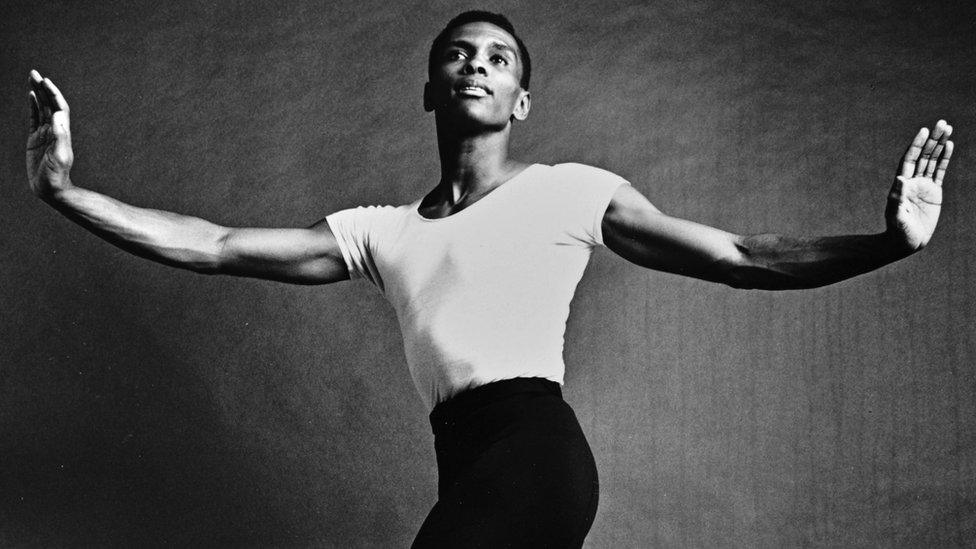Grime ballet 'sounds like an oxymoron'
- Published
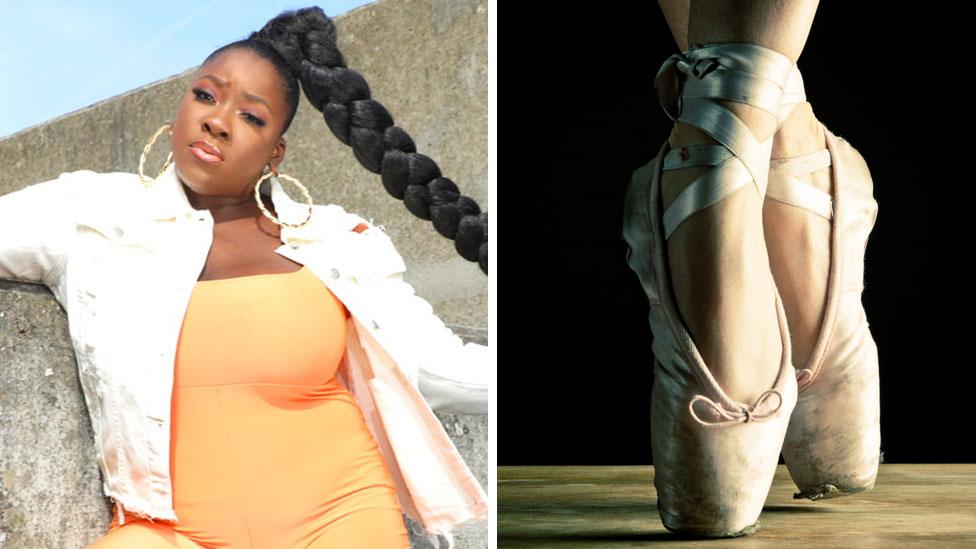
The makers of "the world's first grime ballet" want to encourage more black people into the dance discipline.
Grime artist Lioness and choreographer Alexander Whitley will join forces on Thursday for a short piece entitled London Sketchbook at Boxpark Wembley.
The show takes its lead from Stormzy, who invited classically-trained black dancers on stage during his Glastonbury headline appearance last summer.
The new grime ballet pair tell the BBC it's been a joy "merging two worlds together".
"I think there's a lot of black people who are interested in ballet and do go and are participants of ballet, but it's interesting to do it in this way," says Lionness, who will perform fresh tracks alongside dancers from Whitley's company.
"That's why I'm so happy to be a part of this because grime ballet sounds like an oxymoron - and anything that sounds weird, I'm here for!
"Because is it actually that weird? No, because we're in London - it's a multicultural city, and it's good to showcase all the different art forms and the cultures merge together as one."
Stormzy's historic 2019 set was used as a vehicle to highlight how institutional racism - both conscious and unconscious - are present in all walks of life, including ballet.
In 2018 the MC's collaborators Ballet Black made moves to improve things by creating brown and bronze shoes, which had traditionally not been widely available, for non-white dancers.
Artistic director Whitley, who has worked with the Royal Ballet and Sadler's Wells Theatre, suggests there are "a lot of assumptions" that go with words like grime and ballet and the types of people involved in each.
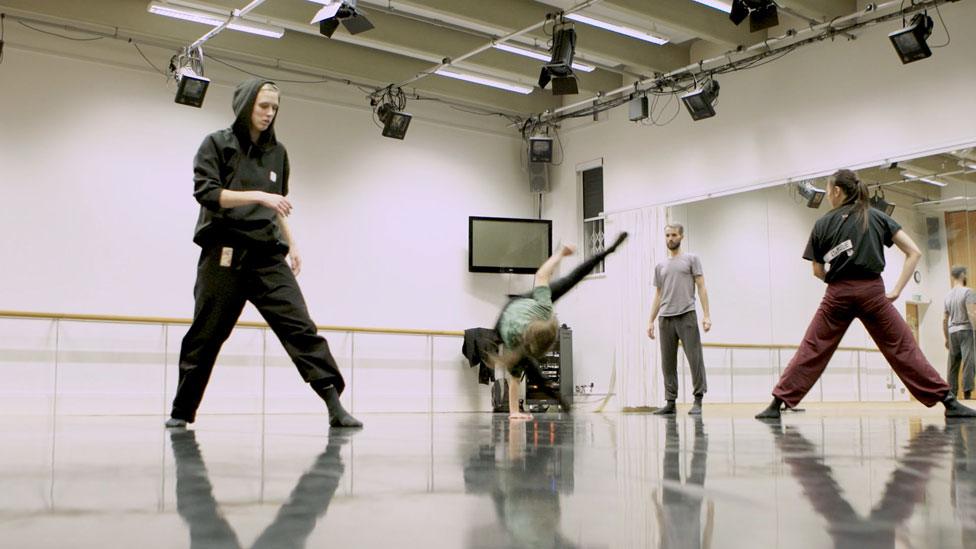
The Alexander Whitley Dance Company was established in 2014
Yet, "as soon as you scratch beneath the surface", he says, a new picture emerges showing contemporary dance is actually "more inclusive now than ever".
"What we're trying to do with an event like this is open up to anyone and to say that any of these avenues are possible to them regardless of their background and as artists we can come together and celebrate the differences," Whitley adds.
"There's people of all cultural backgrounds represented onstage."
'Still work to do'
While Whitley does work with dancers of different ethnicities, it's fair to say that none of them look like Lionness. But that's something they both hope could soon change.
He accepts there's "still work to do" to make sure ballet opportunities are provided for young people of all backgrounds.
"I guess that's often the biggest obstacle. Giving people the opportunity in the first place so they can take an interest and that there's a door open for them to pursue it."
In providing one he follows the example of the trailblazing late ballet dancer Arthur Mitchell, who in 1969 set up the Dance Theatre of Harlem - the first classical ballet company to focus on black dancers.
"Everyone said I was crazy," declared Mitchell, about the theatre which recently marked its 50th anniversary.
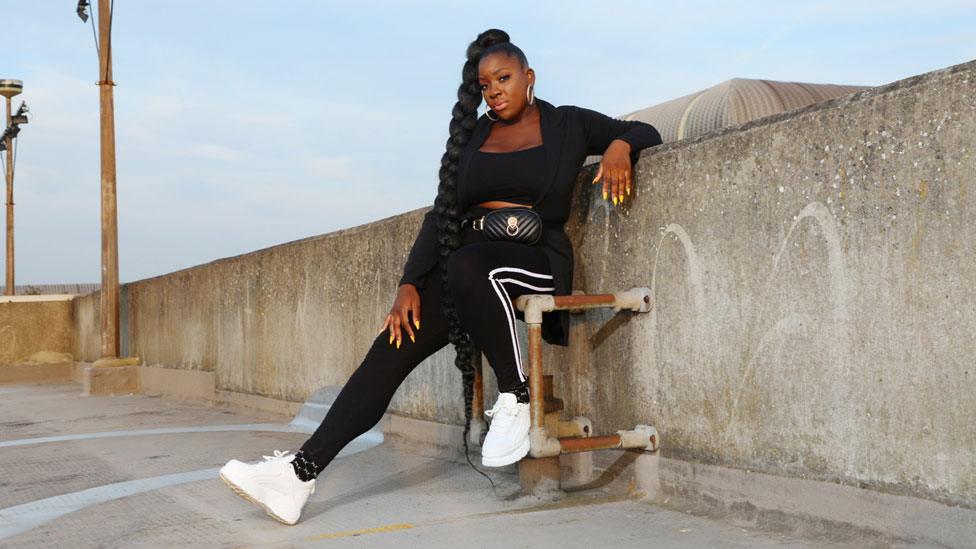
Lioness will perform tracks from her new EP, including a collaboration with poet and producer Nat Powers
Grime MC Lioness says she'd love to see more black people involved in contemporary dance and ballet, but only if that's what they actually want to do.
"I've got friends in it and it'd be amazing to see more people come through doing that form of dance," she explains.
"But only if that's something they are into and that's their thing. I wouldn't want to force it on anyone just because, but if that's within your heart and soul then by all means go for it."
The event, which they believe is the first of its kind, was the brainchild of Pete Bowker - boss of creative networking company Glug. He suggested the idea to Whitley at the Royal Opera House, with his ears still ringing from an AJ Tracey gig the night before.
"The project unites the urban grime scene with classical dance for a common creative purpose," he said in a statement.
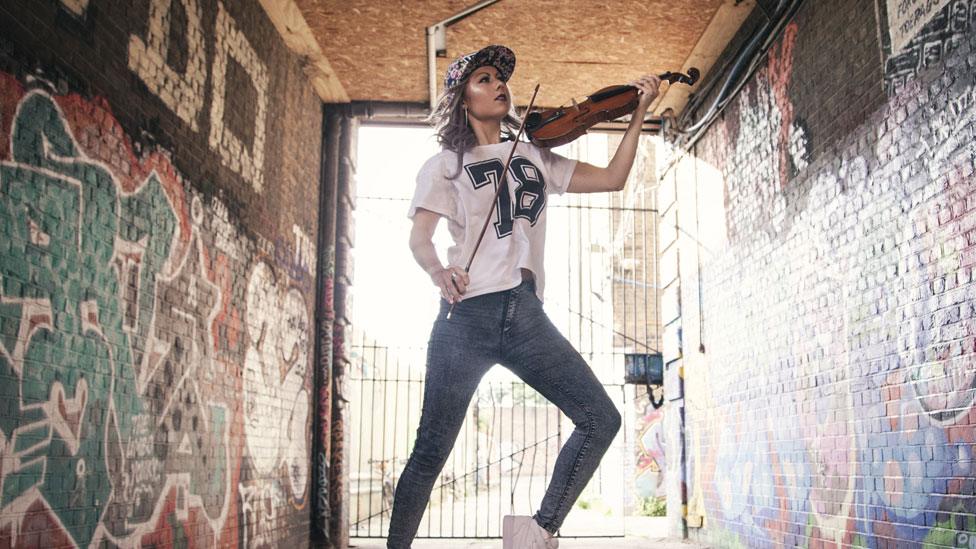
"The Grime Violinist" Tanya Cracknell has worked alongside Giggs, Lethal Bizzle, D Double E and JME
The 10-minute performance, which also features "grime violinist" Tanya Cracknell, will be followed by a series of talks and installations intended to help cross the cultures.
Whitley admits there have been one or two "raised eyebrows" about the new project but, he believes, an equal amount of "excitement and curiosity".
"Somebody might be a ballet artist that wants to dance to grime but has never done it before because they think that could be stupid," laughs Lionness.
"But once it's been done it's like. 'Oh, actually, let me tap into that'. So it's just making everyone feel like they can."

Follow us on Facebook, external, or on Twitter @BBCNewsEnts, external. If you have a story suggestion email entertainment.news@bbc.co.uk, external.
- Published11 September 2019
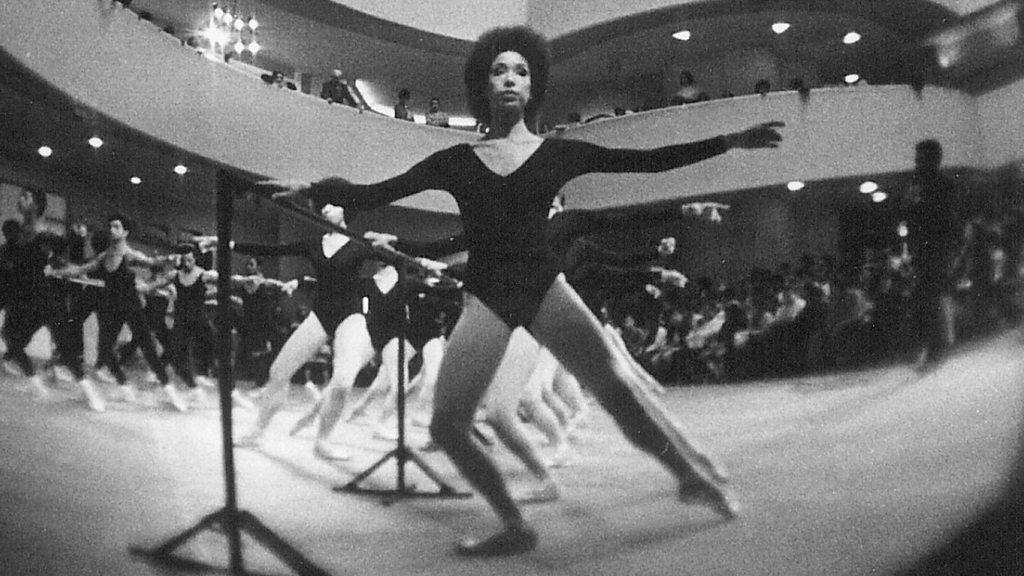
- Published30 June 2019

- Published29 June 2019

- Published3 November 2018
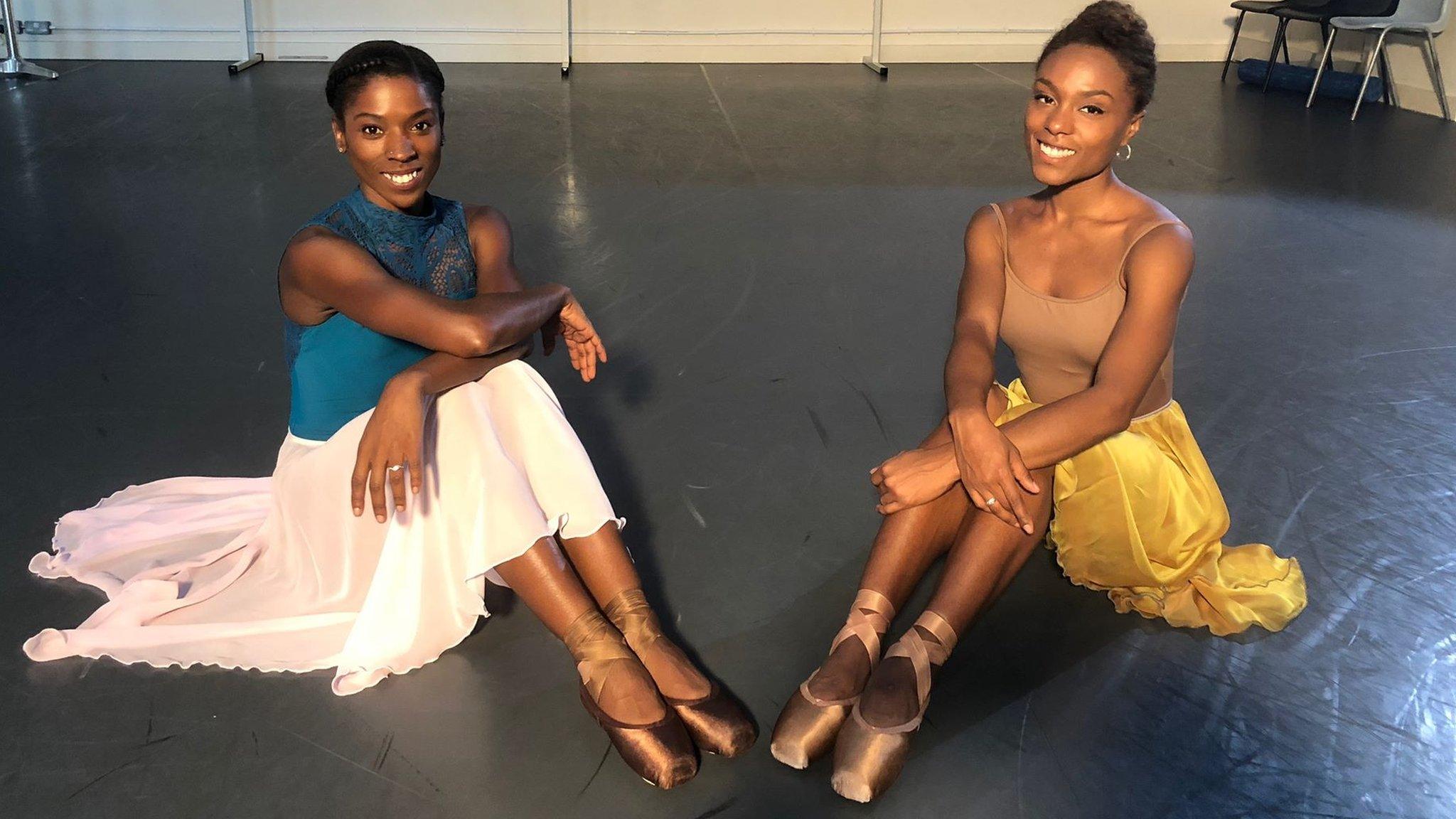
- Published20 September 2018
